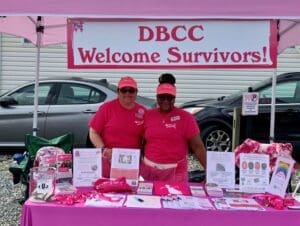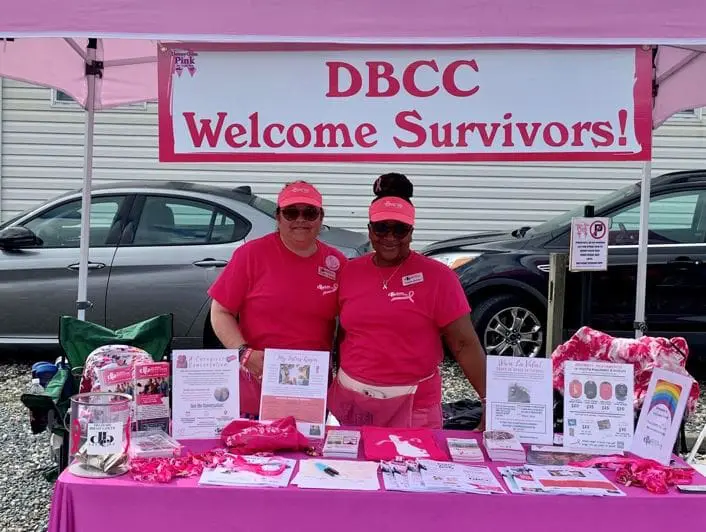

The Delaware Breast Cancer Coalition is focusing on reducing the incidence of triple negative breast cancer in Black/African American women.
Black History Month, celebrated the entire month of February, is a time to reflect, celebrate and acknowledge the contributions, achievements, and experiences of African Americans throughout history. Delaware Breast Cancer Coalition is taking this month to recognize the many African American men and women who have overcome one of the toughest battles of their lives – surviving breast cancer.
“Unfortunately, Black/African American women have a higher rate of Triple Negative Breast Cancer (TBNC), which can be aggressive and accounts for 10 to 15 percent of all breast cancers,” Francesca Vogel, CEO of DBCC, said. “Although it is true that TNBC can affect people of all races, black women are at particular risk and, as of March 2, 2023, Black/African American women in Delaware have the highest rate of TNBC in the country.”
The good news is that TNBC is treatable and, like most breast cancers, the earlier it is detected, the more treatment options are available.
“Our Patient Navigation Program, in partnership with the State of Delaware, provides centralized navigation services for screenings,” Vogel said. “Through these partnerships, we are expanding accessibility to mammography sites plus other screening locations. We are also working to remove cultural and economic barriers that prevent women and men from getting the screenings they need for early detection. These barriers may include lack of transportation, lack of a primary care provider or lack of insurance.”
Natalie Belcher knows all too well how important early diagnosis is in treating TNBC. A Survivorship Specialist with DBCC, Belcher was diagnosed with TNBC in 2015.
“My first comment to my surgeon was ‘What are we going to do about it?’ My thought here was for my daughter and my granddaughter to come,” Belcher said. “My surgeon was not surprised by the question because she had known me for some time and knew that I was a fighter and believed that with courage and hope (my faith), I was not going to let this thing become my history!”
Vogel explained that the best thing women can do, regardless of race, is to get screened. Screening is quick and easy, but those simple screenings could be a lifesaver. DBCC can help anyone navigate through any barriers that prevent them from getting screened. Through their Screening for Life program, they can also assist with insurance issues, such as lack of insurance or policies that don’t cover the testing needed.
It is also important to talk to family and friends about TNBC as well as other breast cancers, sharing information about signs and symptoms, especially among those with increased risks. It is also important to speak out when racial disparities are recognized in healthcare so that everyone can get the care they need.
“We offer the My Sister’s Keeper program,” Vogel said. “This is a free program that provides knowledge, understanding and support to people of color at any stage of their breast cancer journey. This is a great program to learn from those who have walked this path before you and what to expect as you walk your own path.”
DBCC’s mission is to empower its community by raising awareness of breast health issues and increase access to care through outreach, education and support services while also facilitating early detection and treatment of breast cancer.
“DBCC stands resolutely with the Black/African American community, offering crucial screenings and support programs to dismantle barriers and ensure everyone has access to the resources they need,” Vogel said. “Together, we can help change the history and future for black women in Delaware.”
For more information on the programs offered by DBCC, visit www.debreastcancer.org or call 1-888-672-9647.


Share this Post




